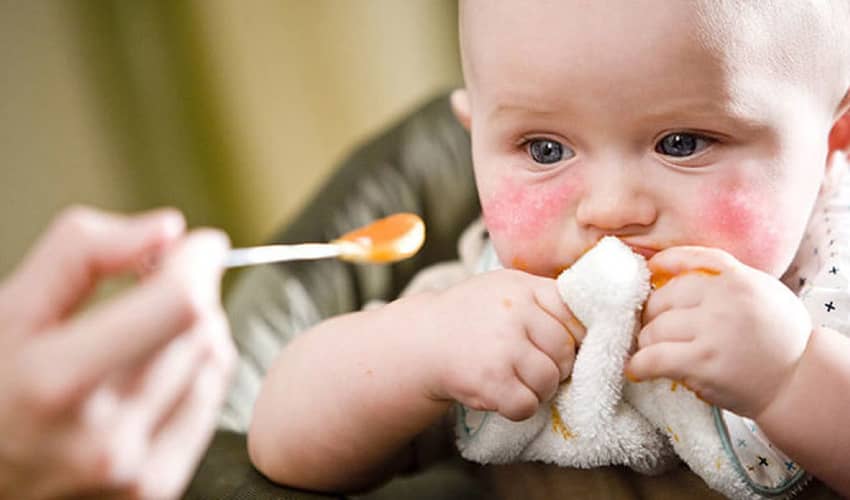Newborn Weight Gain and Weight Loss

Newborn Weight Gain and Weight Loss: Causes and Considerations
The early days of a newborn’s life are filled with rapid changes and adjustments for both the baby and the parents. Among the many things that new parents keep a close eye on is their baby’s weight. Understanding the patterns of weight gain and loss in newborns is crucial for ensuring the baby’s healthy development. This blog will explore why newborns lose weight after birth, the normal patterns of weight gain, and what to watch out for to ensure your baby is on track.
Understanding Initial Weight Loss in Newborns
It’s common for newborns to lose weight shortly after birth. In fact, most newborns lose between 5% and 10% of their birth weight within the first few days. This weight loss is entirely normal and typically not a cause for concern. But why does this happen?
- Fluid Loss: At birth, babies carry excess fluid from their time in the womb. After birth, they naturally shed this fluid, which accounts for most of the initial weight loss.
- Adjustment to Feeding: Newborns are learning to feed in the first few days, whether they are breastfed or formula-fed. It may take a little time for both the baby and the mother to establish a successful feeding routine, which can contribute to the early weight loss.
- Excretion of Meconium: The baby’s first stool, known as meconium, is passed within the first 24 to 48 hours after birth. This also contributes to the initial weight loss.
When Does Newborn Weight Gain Begin?
After the initial weight loss, newborns typically begin to regain weight by the time they are 5 to 7 days old. By about 10 to 14 days after birth, most babies have returned to their birth weight. From this point on, healthy newborns should start gaining weight steadily.
The rate of weight gain can vary, but on average:
- Breastfed babies tend to gain about 4 to 7 ounces (113 to 200 grams) per week during the first few months.
- Formula-fed babies might gain weight slightly faster, at about 5 to 8 ounces (140 to 226 grams) per week.
It’s important to note that every baby is different. Some may gain weight more slowly, while others may gain more rapidly. Regular check-ups with your pediatrician will help ensure that your baby is growing at a healthy rate.
Causes of Weight Loss or Slow Weight Gain in Newborns
While initial weight loss is normal, continued weight loss or slow weight gain can be a concern. Several factors can contribute to this, and it’s essential to identify and address them early.
- Feeding Issues:
- Latching Problems: If the baby is not latching correctly during breastfeeding, they may not be getting enough milk, leading to inadequate weight gain.
- Low Milk Supply: Some mothers may have a low milk supply, which can result in the baby not getting enough nutrition.
- Formula Feeding Challenges: For formula-fed babies, incorrect preparation of formula or feeding too little can result in insufficient caloric intake.
- Medical Conditions:
- Infections: Newborns are vulnerable to infections, which can affect their ability to feed properly and absorb nutrients.
- Metabolic Disorders: Some babies may be born with metabolic conditions that impact how their bodies process and use nutrients.
- Reflux: Gastroesophageal reflux (GER) can cause babies to spit up frequently, which may lead to inadequate weight gain.
- Prematurity:
- Premature babies often have more difficulty with feeding and gaining weight because their bodies are still developing. They may require special feeding strategies and close monitoring.
- Jaundice:
- Jaundice, a common condition in newborns, can sometimes cause lethargy and poor feeding, leading to weight loss or slow weight gain.
Monitoring Your Baby’s Weight: What to Watch For
Regular monitoring of your newborn’s weight is crucial during the first few weeks and months of life. Here are some key things to keep in mind:
- Regular Pediatric Check-Ups: Ensure your baby is seen by a pediatrician regularly. During these visits, your baby’s weight, length, and head circumference will be measured and tracked on a growth chart.
- Feeding Frequency and Duration: Keep track of how often and how long your baby feeds. Newborns typically need to feed every 2 to 3 hours, including during the night.
- Diaper Output: Monitoring diaper output can be a good indicator of whether your baby is getting enough nutrition. By the end of the first week, your baby should be having at least 6 to 8 wet diapers and 3 to 4 bowel movements a day.
- Signs of Dehydration: If your baby is not gaining weight, watch for signs of dehydration, such as a dry mouth, fewer wet diapers, or a sunken soft spot on their head. If you notice these signs, contact your pediatrician immediately.
- Baby’s Behavior: A well-fed baby will be alert, active, and content between feedings. Excessive sleepiness, irritability, or lack of interest in feeding can be red flags.
Tips for Ensuring Healthy Weight Gain
To support healthy weight gain in your newborn, consider the following tips:
- Breastfeeding Support: If you are breastfeeding and concerned about your baby’s weight gain, seek support from a lactation consultant. They can help with latching, positioning, and increasing milk supply if needed.
- Frequent Feeding: Ensure your baby feeds frequently, especially in the early days. Don’t hesitate to wake your baby for feedings if they are sleeping too long between them.
- Supplementation: If your baby is not gaining weight adequately through breastfeeding alone, your pediatrician may recommend supplementing with pumped breast milk or formula.
- Skin-to-Skin Contact: Skin-to-skin contact can help stimulate your baby’s appetite and improve feeding success, particularly for breastfeeding mothers.
- Track Progress: Keep a feeding and weight diary to monitor your baby’s progress. Share this information with your pediatrician during check-ups.
When to Seek Help
While some variations in weight gain are normal, certain signs warrant immediate attention from a healthcare professional:
- Your baby has not regained their birth weight by 14 days of age.
- Your baby continues to lose weight after the first week.
- Your baby is not feeding well or seems lethargic.
- There are fewer than 6 wet diapers a day by the end of the first week.
If you notice any of these signs or have concerns about your baby’s weight gain, don’t hesitate to contact your pediatrician.
Newborn weight gain is an essential indicator of your baby’s overall health and development. While initial weight loss is normal, steady weight gain should follow in the weeks after birth. By understanding the causes of weight fluctuations and monitoring your baby’s progress, you can ensure they are on the right track. Always consult with your pediatrician if you have any concerns about your baby’s weight gain or feeding habits.












